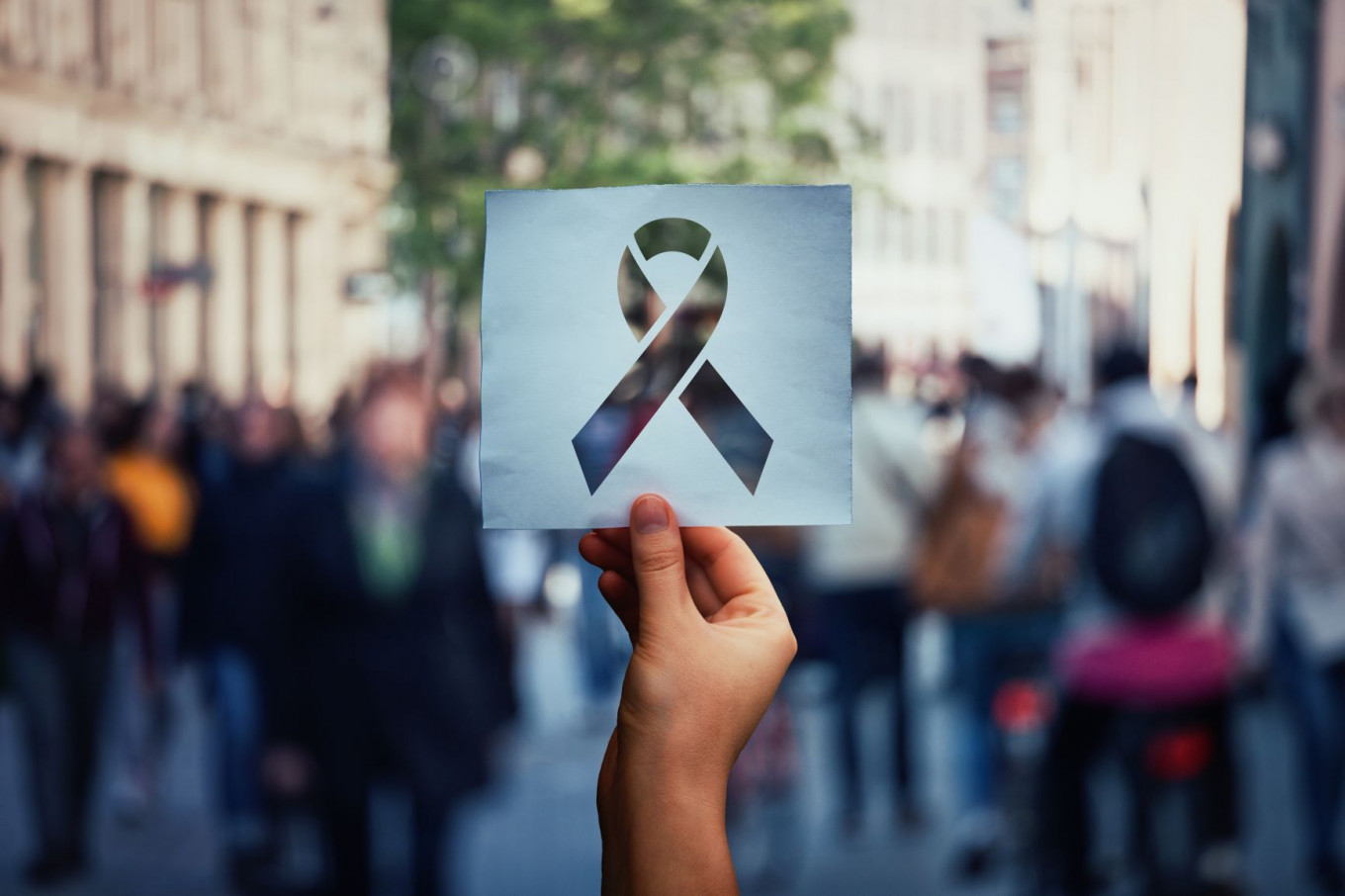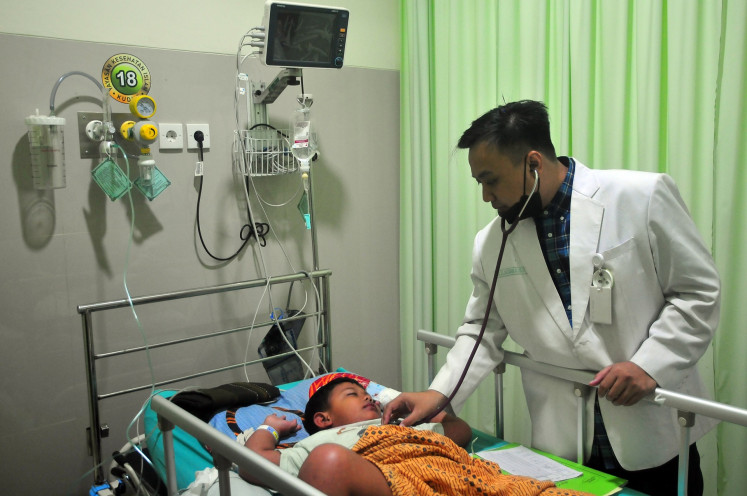Popular Reads
Top Results
Can't find what you're looking for?
View all search resultsPopular Reads
Top Results
Can't find what you're looking for?
View all search resultsEveryone benefits when women gain a foothold in the workplace
Women continue to be underrepresented at all levels of political leadership, and one in five women and girls between the ages of 15 and 49 report experiencing physical or sexual violence by an intimate partner within a year.
Change text size
Gift Premium Articles
to Anyone
W
hen the time came to rebuild Lombok, West Nusa Tenggara, following the disastrous earthquake and tsunami in 2018, construction crews quickly filled up with men. It was a man’s job after all.
Not so for a small crew of six women who knew they could do the job of rebuilding the much-needed marketplace. But their participation was much more than just a construction gig; it became a model of gender empowerment in the workplace, dismantling gender roles one brick at a time.
With support from the German Development Bank, KfW, the PETRA project by the United Nations Development Programme (UNDP) took the first step in eliminating gender inequality at work by facing stereotypes head-on, hiring women and expanding further opportunities for an entire community.
Women belong in the workplace, but are excluded in many male-dominated sectors even before they say, “I want the job”. As part of the International 16 Days to Eliminate Violence Against Women and Girls, which we mark these days, addressing gender stereotypes of all kinds is one of its goals.
On a larger scale, gender disparity persists in many industries in Indonesia. This gender disparity isn’t just confined to low-skill work; it spans the spectrum of employment – extending to the boardroom and beyond.
According to the World Bank, women globally fill 47 percent of entry-level jobs, but the number decreases further up the ladder, where women are only in 20 percent of mid-management positions, and only 5 percent of CEOs and board members are women.
The United Nations has partnered with governments, civil society and businesses in Indonesia to make progress in closing this gap for several decades, but while it is heartening to know that more women are serving in parliament and positions of leadership, and laws are being reformed to advance gender equality, there is much to be done.
Discriminatory laws and social norms remain pervasive. Women continue to be underrepresented at all levels of political leadership, and one in five women and girls between the ages of 15 and 49 report experiencing physical or sexual violence by an intimate partner within a year.
Furthermore, workplace organizational structures have led to the development of restrictive policies and processes that work against women’s interests, which has led to a pervasive general inequality, with women forced to make hard choices that lead to an imbalance in their lives.
To further address the persistent gender gap in the workplace, the UNDP supports public and private organizations meeting specific standards promoting gender equality through our Gender Equality Seal Programme. UNDP Indonesia is the first UNDP country office in Asia Pacific to earn the Gold Seal for mainstreaming gender equality in all aspects of our work, our program and its contribution to gender equality goals in the country.
We believe in the Seal, because we are committed to creating a gender-equal workplace, not just in our offices, but in the work we do across the country. Our programs seek to protect and advance women's rights and gender equality.
With a results-based focus on each indicator, and as women and leaders and professionals ourselves, we find the Gender Seal an effective and legitimate incentive ensuring our personal commitment to gender equality and women’s empowerment throughout UNDP Indonesia.
The work involves providing partners with tools and guidance to create a more efficient and equitable workplace and contributes to the advancement of gender equality and the achievement of the Sustainable Development Goals. It also advocates for eliminating gender pay gaps, increasing women’s roles in decision making, enhancing access to nontraditional jobs, eradicating sexual harassment in the workplace and using more inclusive, nonsexist communication.
Indonesia has made great strides in developing its economy by investing in e-commerce, particularly startups. While these companies have placed the country on the world map, the number of women in leadership of these companies is low. Indonesia is also ranked 10th in the World Economic Forum’s Gender Gap Index – behind other developing countries in the ASEAN. This must be corrected.
Strong female leadership has been shown, through multiple studies, to have a positive net gain on business performance, but workplaces need to add support systems to ensure women can survive and thrive in the workplace.
Back at the construction site in Lombok, the six female construction workers made up the first group of women hired to be part of any construction site in their village. They may not be aware of the impact, nonetheless these mighty women were part of a solution for challenges that go beyond their village.
***
Sophie Kemkhadze is UNDP Indonesia deputy resident representative, Yenny Widjaja is UNDP Indonesia gender specialist and Astiti Sukatrilaksana is UNDP Indonesia head of human resources.










